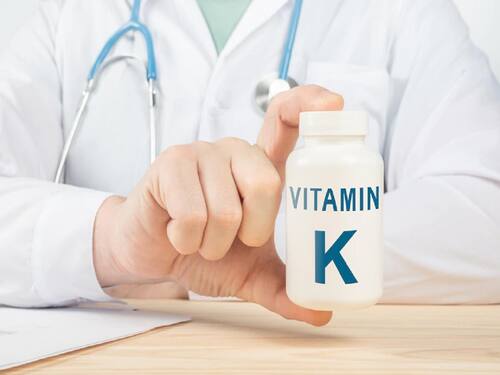
Vitamin K is essential for a wide variety of bodily functions. What will happen if you don’t get enough of this nutrient?
Just like the other vitamins D, E, and B12, K is equally important. It is essential for optimal clotting of blood and prevention of excessive bleeding. Unlike many other vitamins, vitamin K will not be typically used as a dietary supplement. Vitamin K is a group of vitamins in green vegetables. Vitamins K1 (phytonadione) and K2 (menaquinone) are commonly available in the form of supplements. Deficiency of this vital nutrient can lead to many health problems.
What will happen if you don’t include enough of Vitamin K in your diet?
Below, Neha Choudhary, Nutrition & Dietitian, SRV Hospitals Dombivali, tells you the consequences of vitamin K deficiency in the body as well as food sources of this nutrient.
Role of vitamin K in the body
A natural remedy for congealing the blood, the K vitamin has a wide range of health benefits. The essential role of vitamin K is for wound healing, reversing the harmful effects of blood thinning medicines. Moreover, it is also used in preventing bleeding disorders in newborns exhibiting hemorrhagic disease caused due to absence of vitamin K.
Vitamin K is also needed for promoting bone health. Along with vitamin D, vitamin K helps with the calcium-binding action required for the healthy functioning of the bones and gums. It strengthens the skeletal structure, increases bone density, and cuts down the chances of fracture when it comes to older women. It also successfully helps with osteoporosis and bone loss. According to studies, this vitamin prevents the mineralization in the arterial walls and keeps the blood pressure under control thus allowing the heart to pump blood smoothly throughout the body by enhancing heart health.
Furthermore, it is also needed for dental health. It activates the production of osteocalcin which is needed for the growth of new dentin (calcified tissue below the teeth’ enamel). It also makes the teeth strong from the root and prevents loss or decay. As per the evidence available, vitamin K is needed to improve memory as well in senior citizens. It is used to manage the itching, experienced due to biliary cirrhosis, and also has been known to reduce blood cholesterol in people on dialysis.
Problems that can arise due to deficiency of vitamin K
Low levels of vitamin K can increase the chances of uncontrolled bleeding. While vitamin K deficiencies are rarely seen in adults, they are very common in newborn infants. A single injection of vitamin K for newborns can be helpful. Vitamin K is also used to deal with the overdose of the blood thinner Coumadin. The deficiency of this vitamin means easing bruising, small blood clots underneath their nails, bleeding from the area where the umbilical cord is removed, bleeding in the skin, nose, and gastrointestinal tract, and sudden bleeding in the brain, which is fatal.
Foods containing high levels of vitamin K
Food that are good sources of Vitamin K include spinach, asparagus, broccoli, legumes like soybeans, eggs, strawberries, okra, cabbage, prunes, parsley, soybean, pumpkin, Kiwi, avocado, blueberry, parsley, lettuce, cauliflower, cheese, milk, and yogurt.
Total Wellness is now just a click away.
Follow us on





